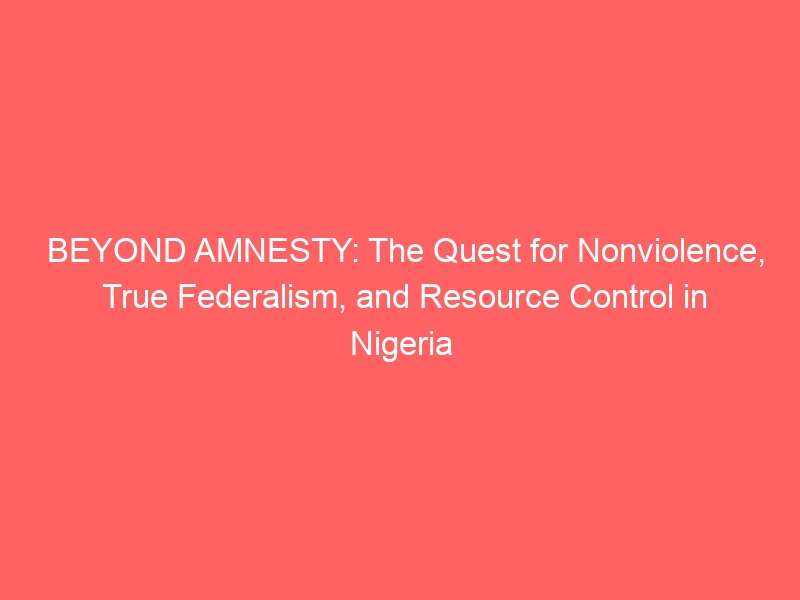By Rev. Oweikeme Johnny Peter
The pursuit of nonviolence in conflict resolution provides a legal avenue for addressing grievances within the framework of established laws, exemplified by figures like Rev. Martin Luther King Jr. and Nelson Mandela. In 2009, the Niger Delta people gained legal permission for nonviolence actions through the presidential amnesty deal, emphasizing the need for peaceful approaches amid ongoing struggles. This transformation was seen as essential since the amnesty deal merely condemned armed resistance without addressing the root cause – the lack of true federalism/resource control.
The Niger Delta struggle, rooted in oppression and political marginalization, is inherently a legal battle, with violence condemned by existing laws. However, research reveals that the same amnesty offer condemning armed struggle grants legal permission for nonviolence actions. The acceptance of the amnesty offer by MEND should have prompted the implementation of true federalism/resource control, the democratic solution to Niger Delta’s grievances.
Without true federalism/resource control, the risk of a return to armed struggle looms, given the absence of democratic principles, fostering corruption within the Nigerian government. The Niger Delta issue has evolved into a national problem, evident in recent events like the End SARS protests, signaling potential upheaval if the unitary system, disguised as democracy, persists.
What is deemed as peace in the Niger Delta today is only a temporary break from violence, as the root cause remains unaddressed. Rev. Martin Luther King Jr. emphasizes that nonviolence is not the opposite of violence; rather, peacefulness without justice is its true antithesis. Nonviolence in conflict resolution serves as an antidote to violence and negative peace.
Our goal is to unveil the true essence of democracy to Nigerians, advocating for the correction of political errors that threaten Nigeria’s peaceful coexistence. To achieve this, we must address social vices such as the increasing use of hard drugs among youths and the detrimental effects of crude oil theft on the Niger Delta ecosystem.
Our inaugural campaign on December 16, 2023, in Oporoza, headquarters of Gbaramatu Kingdom, Delta State, against drug use and the impact of crude oil theft, was a resounding success, thanks to the support of various leaders and residents.
In conclusion, the issues in the Niger Delta trace back to the federal government’s neglect of established democratic laws, particularly regarding accurate federalism and resource control. Democracy is intrinsic to federalism, allowing states control over resources, affairs, and contributions to the federal government. Nonviolence is our approach to reclaim our lawful entitlement to resource control and uphold the principles of democracy.
Nigeria is not operating on democratic principles! Join the Nonviolence Campaign in Nigeria, let’s build a home where comfort and prosperity thrive. Together, let’s shape a peaceful and prosperous society for a better Nigeria.
By Rev. Oweikeme Johnny Peter, is the Program Coordinator, Nonviolence Campaign in Nigeria.












